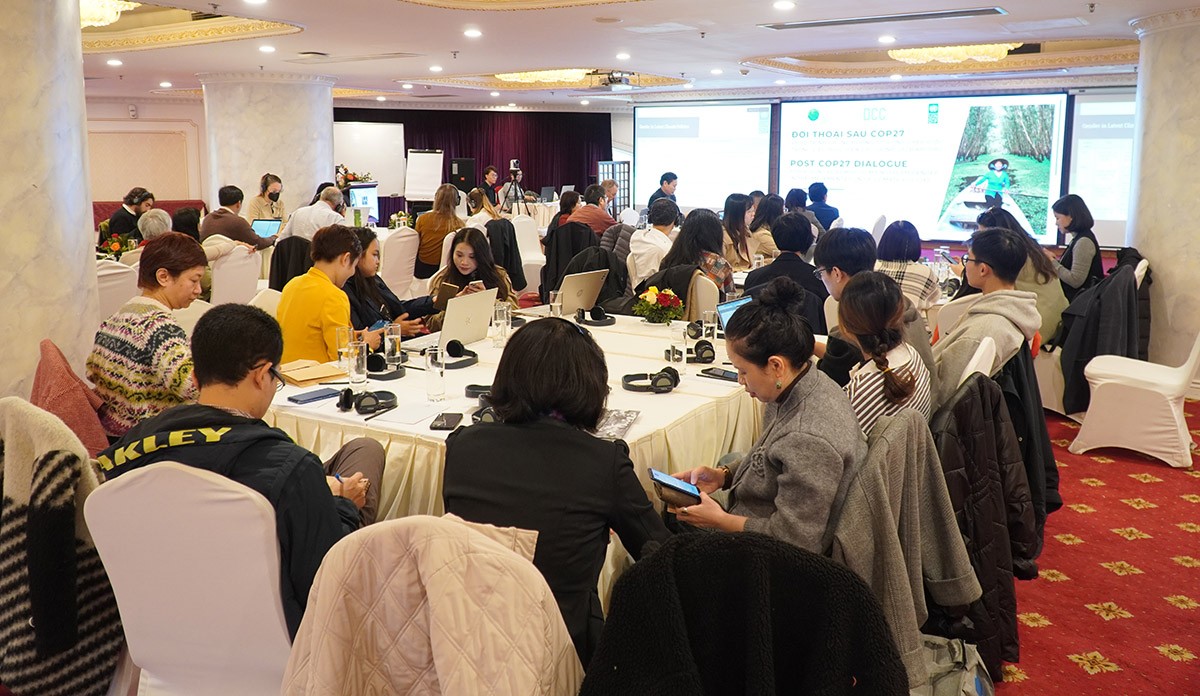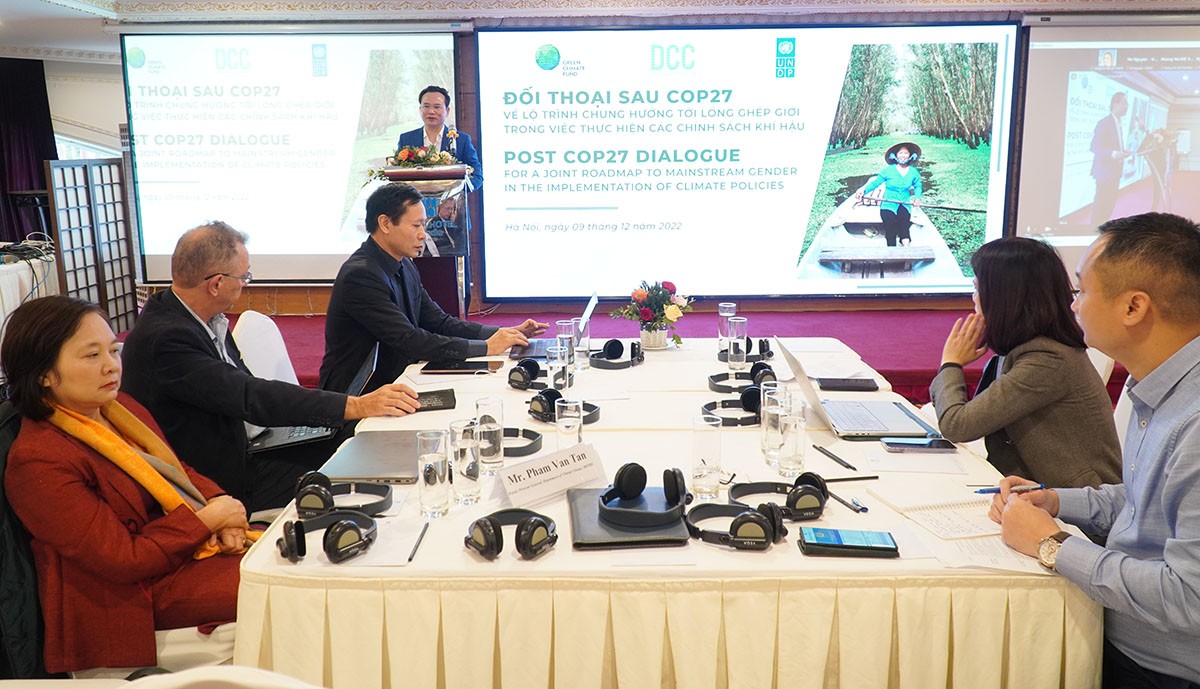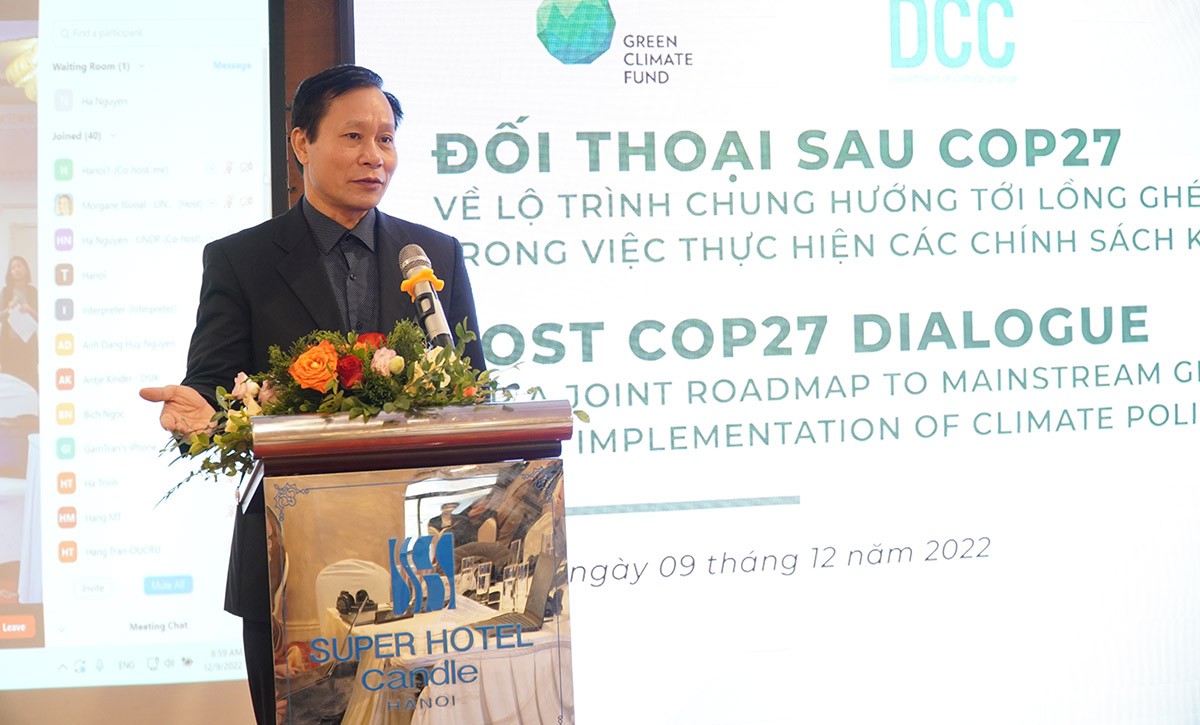
Vietnam is committed to gender equality and climate action: Official
Latest
 |
| The United Nations Development Programme (UNDP) and the Vietnam's Department of Climate Change (DCC) hosted a "Post-COP27 Dialogue for a Joint Roadmap to Mainstream Gender in Climate Policy Implementation." |
Participants took stock of the country's progress in mainstreaming gender in climate policies, particularly in five prioritized sectors of the Vietnam National Adaptation Plan (NAP). They discussed how relevant climate policies and Vietnam NAP would be instrumental in creating impactful changes for building resilience for women and men at the local level.
Climate change causes more negative effects on specific groups of women owing to underlying inequalities related to education, health, employment, access to and control of natural and financial resources, the opportunities to participate in policy and decision-making processes, and division of labour.
Climate change can limit livelihood opportunities for women, especially when coinciding with other structural inequalities. Additionally, the role of women in climate action has not been properly recognised. Women are often considered "victims" of climate impacts instead of "positive change-makers."
In effect, women have been making crucial contributions to climate actions, and they have the capacity to act and support their communities in recovering from shocks and natural disasters. Nevertheless, their resilience also depends on the social, economic, and governance capacity and structures at different levels.
 |
| Vietnam is committed to gender equality and climate action as the country's top priorities, said Mr. Pham Van Tan, Deputy Director General for Climate Change. |
Vietnam is committed to gender equality and climate action as the country's top priorities. It is an active member of all international agreements supporting these interconnected goals. "Continuous efforts to mainstream gender equality are progressively generating tangible progress, as illustrated by the National Climate Change Strategy for the period to 2050 (Decision No. 896/2022/QD-TTg), which includes a task to "ensure social security and gender equality" focusing on raising awareness, knowledge capacity, and access to capital, and the inclusion of the MOLISA in the National Adaptation Plan 2020 (Decision No. 1055/QD-TTg)," said Mr. Pham Van Tan, Deputy Director General for Climate Change.
A project's report entitled "Mainstreaming Gender Considerations into the National Adaptation Plan of Vietnam" provides an updated and comprehensive overview of climate and gender governance structure, examines the factors that drive gender inequalities and women's vulnerability to the impacts of climate change, and analyzes the status of mainstreaming gender into sectoral policies, before offering a set of recommendations.
The aim of the report was to inform and enhance improvement and solutions to promote gender equality in the NAP technical report of Vietnam, which will be subsequently submitted to the United Nations Framework Convention on Climate Change (UNFCCC).
 |
| Mr. Dao Xuan Lai, UNDP Head of the Climate Change and Environment Unit, speaks at the event. |
Mr. Dao Xuan Lai, UNDP Head of the Climate Change and Environment Unit, highlighted that "gender equality is often mentioned as a 'principle' in policies, which marks a step in the right direction. However, there is a strong need to develop practical tools to move from theory at the central level to implementation at the local level. This calls for the formulation of specific gender guidelines geared towards the line ministries and provinces in promoting gender equality in climate change responses."
Attending the dialogue were more than one hundred representatives of the Ministry of Labour, Invalids and Social Affairs (MOLISA), DCC, UNDP, and UN Agencies, Vietnam Women's Union Embassies, NGOs/ CSO, academia. The results, insights, and conversations of the dialogue will be harvested and synthesized by UNDP to inform the Joint Roadmap and set a practicable action to move together for gender-sensitive implementation.

















